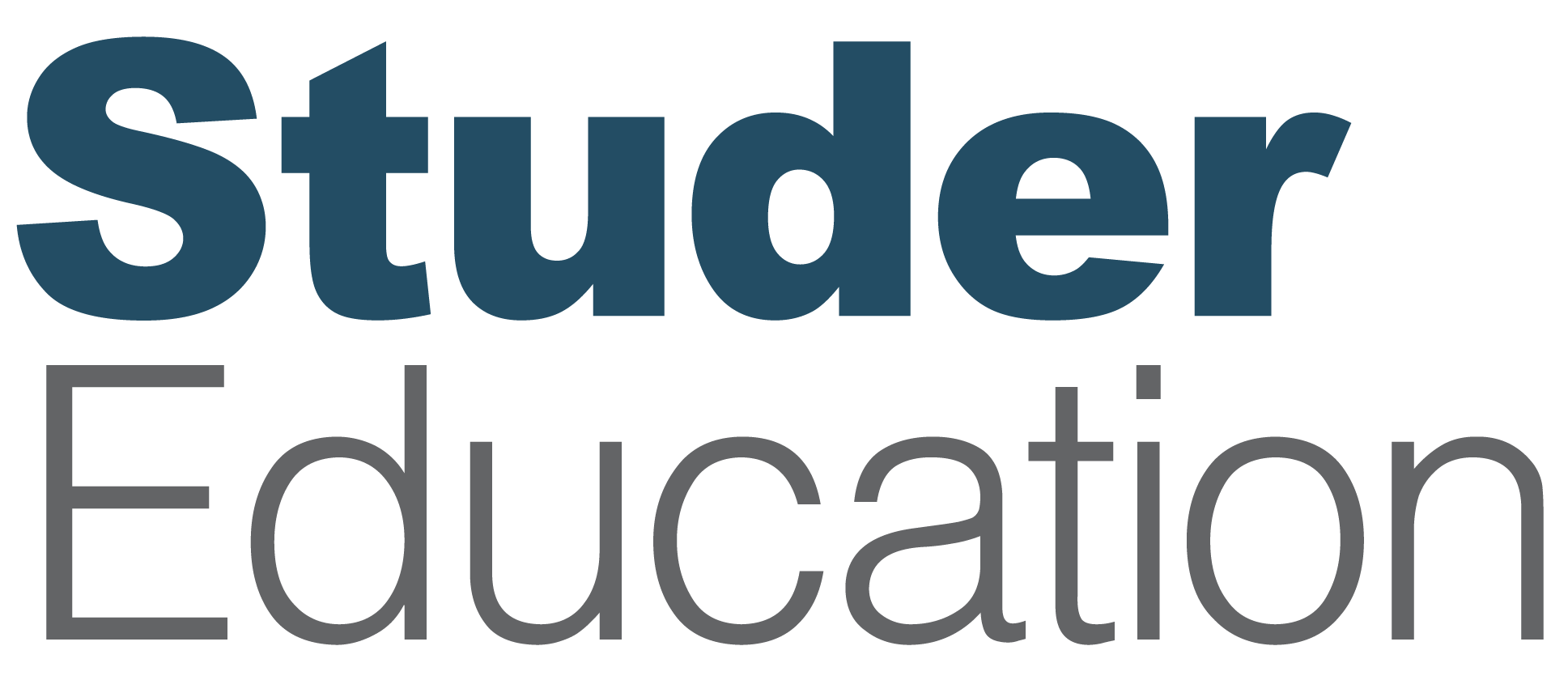
This week, we close our series celebrating the release of Quint Studer and Dr. Janet Pilcher’s book, The Extraordinary Gift: Our Teachers. In this moving episode, Dr. Pilcher shares two more powerful stories about the educators who shape our lives.
First, hear from Dr. Pat Greco as she recalls how the simple moments of connection from caring educators helped her find belonging during a childhood of frequent moves. Then, a story from chapter 3 of the book, as Dr. Charlotte Boling shares her personal experience with a fifth-grade teacher who went above and beyond to meet both her academic and emotional needs after a family tragedy.
This episode addresses questions such as:
- Why are a teacher’s “little moments” often the ones that leave the most lasting impression?
- How can educators create a sense of security and belonging for students during times of change?
Latest Episodes
Charlotte Boling: I don’t know what she saw in me, but she saw it and she called me up and said, “We’re not having this.” And she changed everything about my life.
[Intro music plays in the background.]
Introduction
Janet Pilcher: Hello everyone, welcome to the Accelerate Your Performance podcast. I’m your host Dr. Janet Pilcher, founder and president of Studer Education.
Thank you for joining me today as we release our final episode in this series, celebrating my new book with Quint Studer, The Extraordinary Gift: Our Teachers.
Throughout the last few episodes, we’ve been sharing stories that honor the incredible impact teachers have on our lives. Today is extra meaningful because one of the stories you’ll hear is directly from a chapter in the book.
But first, let’s start with Dr. Pat Greco, our Senior Director of Thought Leadership at Studer Education. Listen as Pat shares how moving to a new community multiple times as a child taught her about the importance of connection. It’s a powerful example of how the little moments from caring educators can provide a sense of belonging during times of change.
Let’s hear Pat’s story.
Interview
Pat Greco: I’m Pat Greco. I serve as Senior Director of Thought Leadership with Studer Education. I’ve been with the team for six years. Prior to that, I served in public education for 38 years. Half of that time as a school superintendent.
When I think back on the impact of education, I grew up on the south side of Chicago and my parents owned a small business, moved a couple of times while I was in school, and really moved at inopportune times right before I was starting high school, right before I was starting college. So those transitions taught me a lot about what it means when you’re thinking about building relationships.
And the part that also was interesting in my upbringing is not only did we move, we moved from radically different types of communities, grew up on urban, suburban south side of Chicago, parents moved to a small rural part of the western side of the state of Wisconsin, and then moved again to another community as I was heading into college.
So when I think about impact and I think about the educators that made the biggest difference for me, it was actually the little moments, moments they wouldn’t realize, you know, had a significant difference. You know, I didn’t necessarily feel connected, you know, kids already had their friend groups. I wasn’t particularly good at anything. And girl’s sports were actually just starting at that time. So I joined everything trying to find my people and find a connection.
But it was the coaches that spent just that little bit of time building relationships. It was the teachers where it wasn’t necessarily about the content first; it was really those little moments in the hallway at the start of class, you know, just getting to know who I was that actually gave me that sense of connection, you know, that I was looking for when all of the other friend groups already seemed formed. You know, so that’s the part that I remember a lot as I’m thinking about my own upbringing.
I started my career as a special educator, as a literacy specialist, assistant superintendent. The moments that really struck me were when early in my leadership career as an assistant principal, again, I’m in the hallways of a middle school. And there was a young man named Matt that moved in. His father had moved to the community. He wasn’t particularly feeling that sense of belonging. And it literally brought me back to those early moments. And just remembering the little connections in the hallway, you know, those little moments in the classroom, being able to just have those warm welcomes. Ironically, years later, I’m teaching a grad class and Matt is in there, you know, in the grad class that I’m teaching as a student now going as a school leader, Matt has also become the superintendent since that time.
So as you think about those moments of connection, one of the things that struck me is the little moments matter, you know, when you’re growing people, whether it’s that connection with students, the connection with young staff members, young leaders, the ability to mentor. I’ve probably mentored and taught and, and developed leaders and still am over the course of my career, hundreds to thousands. And it’s really everyone wants to build that sense of purpose, you know, wants to be seen for the gifts that they bring, wants to feel that natural connection to something bigger than themselves.
Those were the things that when you think about that ripple effect, you know, whether I was 12 and moving or Matt was 12 or moving, or you’ve got a 23 year old teacher who’s just entering into their career, or a young leader who’s wanting to make that difference, it’s really those little connections that make them feel that sense of purpose, you know, help them feel like they have their people in that group and we’re able to grow together as a team. That’s the difference-making for me.
Janet Pilcher: Pat, thank you for sharing your story. It’s often the small, genuine moments, the conversations in the hallway, the extra bit of attention that leave the most lasting impressions.
Pat’s story has a unique full circle moment too. She started out as a young person searching for belonging and founded in the small connections teachers and coaches made with her. Years later as a school leader, she extended that same kindness to a student. And now that student has since become a superintendent himself.
Now we’ll hear from Charlotte Boling, a Director Coach at Studer Education, as she graciously shares the story of a teacher who changed her lie. If you have a copy of the book, you’ll recognize it from chapter three. Let’s hear Charlotte’s story.
Charlotte Boling: Hi, my name is Charlotte Boling and I’m a Director Coach at Studer Education. Here’s a story about a teacher who changed the trajectory of my life and made a complete difference in so many ways.
As a young child, I was an overachiever. I loved school. I loved going to school. Kindergarten was awesome. First grade was terrific. Second grade, I was doing really well. At the end of second grade, we had a personal tragedy and that’s when things shut down for me. At the end of my second grade year in May, actually, my father was accidentally killed. And my life stopped, my learning stopped, my world stopped.
Our family then consisted of my mom who was very young and four children. We were nine, eight, five, and four months old and life was just really hard. And I don’t remember third grade. I don’t remember fourth grade really, but I do remember fifth grade. And fifth grade I was already working very far behind.
I couldn’t think, I couldn’t feel; the feelings that I had were very negative and sad. And in fifth grade I was doing my work and before third grade, fourth grade my teachers kind of accepted, whatever I turned in was good enough and they would let it go. My fifth grade teacher, I turned in a paper. She promptly called me up to her desk and talked to me about it. And I remember it was a language arts paper and I had made a 67 on it and she circled the 67 and she said, “Charlotte, you are a smart girl and I know things are sad at your house, but you can do this.” And so she talked with me and it was the first time someone had said “You’re a smart girl.” It was the first time someone had said, “You can do this.” And it was the first time that someone had said “I’m not accepting this from you.”
So her expectations kind of paved the road for me and I was working below grade level. I was actually reading on the third grade level when I started fifth grade, and she worked with me and basically we developed this contract and she said, “You read every story, you answer every question, you take every test, and you pass every test and you’ve got to make at least an 80 on it. And if you do that for me, then I’m going to work with you and we’re going to move you as quickly as you can.” And I agreed to the contract and I started reading and I loved it. I fell in love with it and I flew through everything that she gave me. I just loved reading and I loved the stories that I read. And she just kind of encouraged me along the way. And so I moved through the third grade book, the fourth grade book. By Christmas I was working on grade level and we had frequent conversations where she would call me up and, “Here’s what you need to do today. When you finish with that, bring it to me and let’s see how you did.” And if there was a hiccup, then she stopped me immediately and she provided corrective feedback and showed me what it needed to look like so that I could see what success looked like and then I would proceed.
So for a little girl who was working below grade level, I had a teacher who cared about my academics enough to say, “You can do better than this, and I expect you to do better than this.” And then she went above and beyond by finding materials and finding materials that I could then use to grow and learn.
I didn’t know it at the time but every time I finished reading something she would say, “Here’s another book.” I would finish that book and she would say, “Here’s another one.” And what she told me at the end of the year as we worked through was that I had read everything at that school, at the elementary school that she had for me and she was then going to, it was called a junior high at that time, she was going to the junior high school and getting the literature books there for me to read.
And that’s a teacher who shows commitment to students, a commitment to me. She saw potential in me and she continued to challenge me and work with me so that that potential became real life. At the end I was already a couple of grade levels ahead. To me, that’s a testament of a teacher who identifies potential, does not accept mediocrity and pushed me. I mean every time I finished something she would say, “Here’s another, here’s another.” She understood me as a learner and she understood the curriculum, the instructional goals, and the learning goals of where she wanted to take me.
I’ve used that so many times in my own teaching career and as a teacher or as a leader in K-12 or the university, I always try to look back, especially when I see a student who’s having struggle, then I think, “Okay, what’s behind that? Why is there a struggle? Is the struggle academic? A person who lacks some basic knowledge or skills and can I fill that? Or is it emotional? Is there something getting in the way?” And for me it was both.
I had an academic loss but I also had an emotional loss that really got in the way of me learning. Ms. Copeland, though, she met everything head on so just as she met my academic needs head on, she also addressed my emotional needs. She would talk to me in private. She would call me to her desk and she would say, “Tell me something about your dad that makes you smile.” No one had talked to me about my dad in years and so for her to then say, “Tell me something about him that you remember that makes you smile” connected my memories to those really happy times, right? Because I was experiencing a lot of sadness. She removed that and said, “Let’s think about something that was happy. Tell me something that your dad did that makes you smile.”
One particular day she asked me that and it was cold. I remember I had on a jacket. It was cold. We were walking out to recess and I told her that he was a really good whistler and she said, “Well today, I want you to find a spot and I want you to whistle just as loud as you can.” And I remember I had my hands in my pockets because it was cold, and I was walking around a tree and I whistled. And when we got ready to line up, I was, you know, just standing with the group of kids and she walked down and she stopped by me and she whispered, “I heard you and I think your dad would be so proud.”
Had she not been my fifth grade teacher, I think I would have continued to fail. I was already working at least two grade levels behind. I don’t know what she saw on me, but she saw it and she called me up and said, “We’re not having this.” And she changed everything about my life.
Conclusion
Janet Pilcher: Charlotte, thank you for sharing your story with us. Ms. Copeland is a beautiful example of the impact a teacher can have on both your academic and your emotional needs. She refused to accept anything less than your best. She didn’t just meet you where you were. She gave you a clear path forward and that made all the difference.
[Outro music plays in the background.]
I want to give a special thanks to everyone who participated in the series. Each of you reminds us that teachers don’t just instruct. They give us the tools and the courage to build a better future for ourselves. I’m personally so grateful to work with each of you and see the way your light shines on the people around you. You too are making a difference. Thank you.
We’ll take a break next week and come back the Monday after. If you missed the Destination High Performance K-12 conferences past July, we have a treat for you throughout the whole month of September. Make sure you’re following the show. I don’t want you to miss it.
And as always, thank you for tuning into this episode of the Accelerate Your Performance podcast. I look forward to seeing you next time as we continue to work together toward organizational and leadership excellence. Have a great week, everyone.
-
Charlotte Boling Leader Coach
-
Pat Greco Senior Director of Thought Leadership
-
Janet Pilcher President








